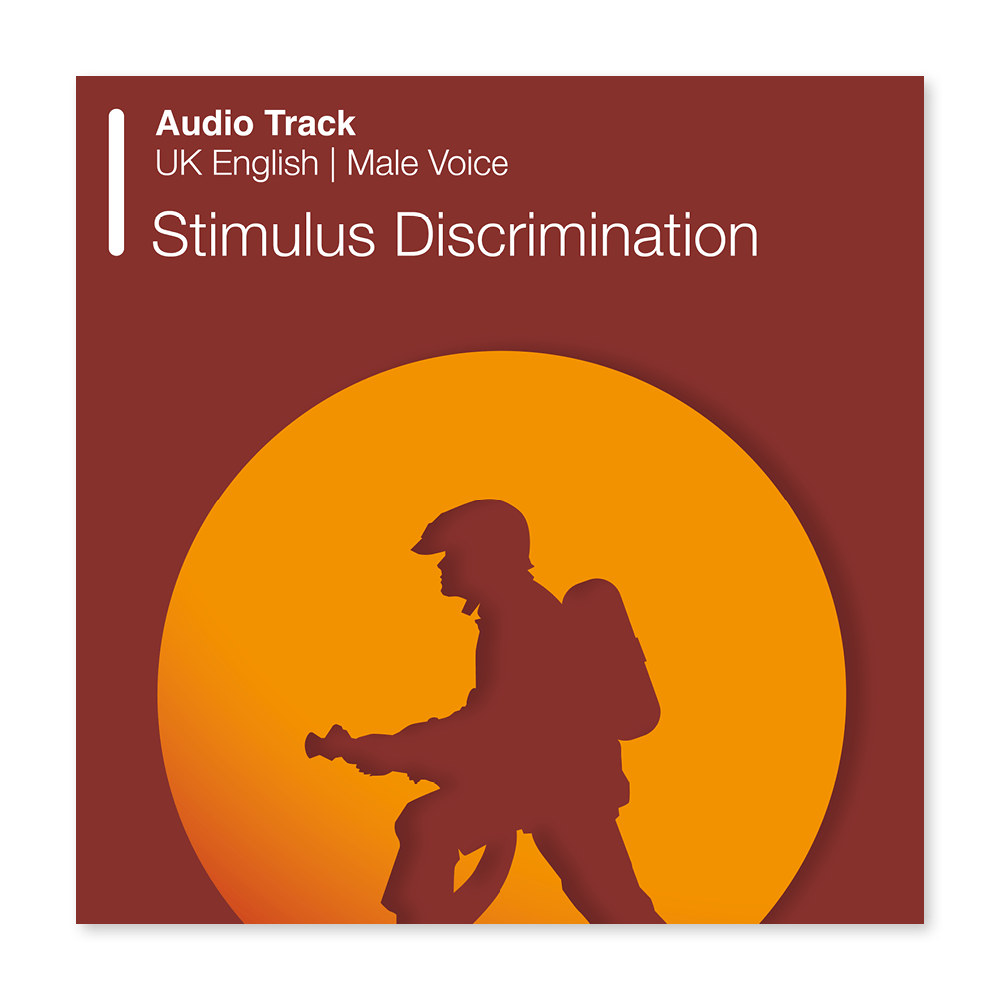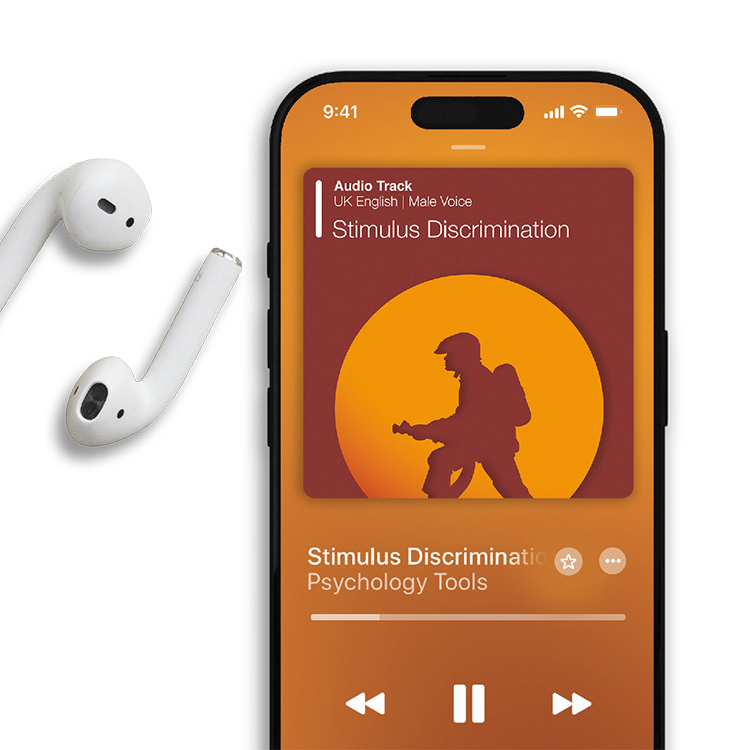Audio track (MP3)
A therapy audio track designed for skills development.
Audio script (PDF)
The script for a therapy audio track. Read along with an exercise, or record in your own voice.
Stimulus Discrimination is a brain retraining technique that helps individuals with PTSD distinguish between past trauma and present safety by recognizing differences between triggers and trauma memories. Taken from the Psychology Tools For Overcoming PTSD audio collection.

A therapy audio track designed for skills development.
To use this feature you must be signed in to an active account on the Advanced or Complete plans.
The script for a therapy audio track. Read along with an exercise, or record in your own voice.
To use this feature you must be signed in to an active account on the Advanced or Complete plans.

Post-traumatic stress disorder (PTSD) is a condition that develops in response to traumatic experiences, resulting in symptoms including such as flashbacks, hypervigilance, and a current sense of threat. The Psychology Tools For Overcoming PTSD Audio Collection offers a structured series of exercises designed to help clients manage these symptoms effectively.
Trauma memories are easily triggered by external stimuli, leading to re-experiencing the trauma as if it’s happening again. Stimulus Discrimination helps break the link between present triggers and past trauma memories by helping individuals notice differences between their past trauma and present realities. This technique aids in placing memories in the past where they belong, and which can reduce the frequency of flashbacks as well as fostering a sense of safety in the present.
Just enter your name and email address, and we'll send you Stimulus Discrimination (Audio) (English GB) straight to your inbox. You'll also receive occasional product update emails wth evidence-based tools, clinical resources, and the latest psychological research.
Working...
This site uses strictly necessary cookies to function. We do not use cookies for analytics, marketing, or tracking purposes. By clicking “OK”, you agree to the use of these essential cookies. Read our Cookie Policy